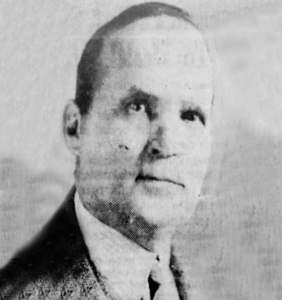
(Apr. 24, 1875-June 25, 1944). A native of Springfield, Illinois, where he was educated in the local schools, Coleman attended Laurenceville (N.J.) Academy, Yale University (B.A., 1896), and the University of Chicago (B.D., 1899).
In 1900 he became professor of history at and remained at this institution for the next 19 years as an instructor and an administrator, serving as vice president of the university from 1912-1919.
Interspersed with his work responsibilities were periods of study. In 1904-1905 he studied at the University of Berlin and later did graduate work at Columbia University, where he was awarded his Ph.D. degree in 1914. In 1920 he moved to Meadville, Pennsylvania, to become chairman of the history and political science department at Allegheny College.
An invitation to become director of the Indiana Historical Commission (later ) brought Coleman back to Indianapolis in 1924, and shortly afterward he also assumed the duties of secretary of the . He was to remain in both of these positions for the rest of this life.
A strong proponent of popularizing history, he was tireless in his efforts to show the importance of history and historical figures to the public and the Indiana General Assembly. During his administration of the Historical Bureau, he expanded the to include more news, articles, and information about upcoming historical events.
In 1924 he was instrumental in having December 11 declared as “Indiana Day” by the General Assembly to commemorate the state’s entry into the Union. Coleman was especially interested in seeing that recognition be given to George Rogers Clark for his victory over the British at Vincennes and was one of the persons responsible for the establishment of a memorial commemorating the event. Other accomplishments credited to him were the establishment of the Indiana Junior Historical Society, the first state junior historical society in the nation, and the incorporation of a popular genealogy section within the Indiana Historical Society.
From 1936 to 1942 Coleman served as acting director of the in addition to his other responsibilities. While in this office he became a leading advocate for libraries at the state level as well as for the establishment of certification for librarians in the state.
Coleman was active in a variety of professional, social, and civic organizations, including of Indianapolis and the Marion County Board of Charities. He contributed numerous articles to local, state, and national publications. He also authored several books including (1914); (1943); and a volume of essays. (1946), which was published posthumously.

Help improve this entry
Contribute information, offer corrections, suggest images.
You can also recommend new entries related to this topic.